-
YOUTH
Walter Benjamin was born to a prosperous Jewish family in Berlin on July 15, 1892. He received a private education at home until the age of ten, after which he finished high school and studied philosophy at the Humboldt University of Berlin. As WWI broke out, Benjamin was beginning to translate the poetry of Charles Baudelaire. In 1915, at the age of 23, Benjamin moved to Munich where he met Gershom Scholem, the future founder of modern Kabbalah research, with whom he forged a close friendship that would last for many years. In Munich, Benjamin also met the poet Rainer Maria Rilke and authored a paper on the poet Hölderlin.
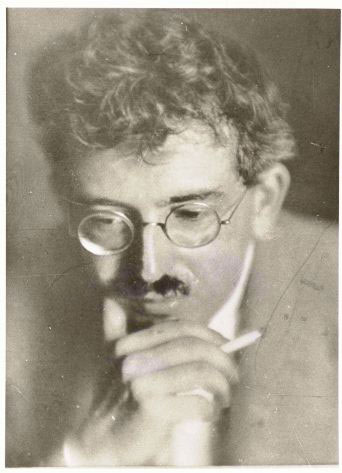 Walter Benjamin
Walter Benjamin -
THE HARDSHIPS OF A YOUNG CRITIC, TRANSLATOR AND PHILOSOPHER
Having managed to avoid being drafted into the German army by feigning lower back pain, Benjamin moved to Bern, Switzerland in 1917. There, in 1919, he received his doctorate on "The Concept of Art Criticism in German Romanticism", summa cum laude. However, failing to find his niche in the academic world, Benjamin struggled to make a living. By this time he was married to Dora Pollack and was the father to a son named Stefan Raphael. Benjamin wrote an essay entitled: "A Critique of Violence", published a translation of Baudelaire and continued to write and research, but his family’s financial situation deteriorated as a result of the crisis in the Weimar Republic.
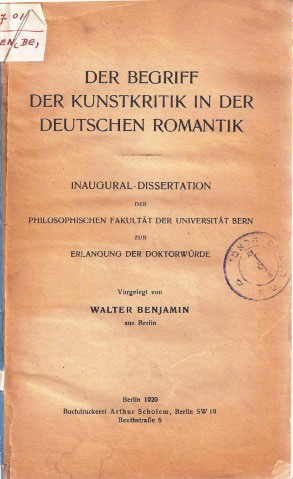 Bejamin's dissertation, The Concept of Art Criticism in German Romanticism
Bejamin's dissertation, The Concept of Art Criticism in German Romanticism -
BENJAMIN, SCHOLEM, AND ZIONISM
In 1923, Benjamin’s good friend Gershom Scholem, influenced by Martin Buber, decided to immigrate to Palestine (Eretz Yisrael). Scholem invited Benjamin to join him, later even trying to entice him with a lectureship at the Hebrew University, but to no avail. Benjamin had never been drawn to Zionism, seeing Judaism, like Zweig, as a spiritual-cultural force: "My life experience led me to this insight: the Jews represent an elite in the ranks of the spiritually active ... For Judaism is to me in no sense an end in itself, but the most distinguished bearer and representative of the spiritual."
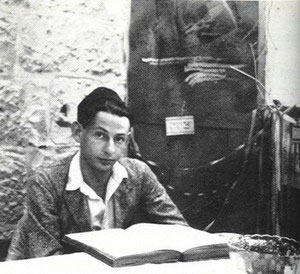 Gershom Scholem, 1925
Gershom Scholem, 1925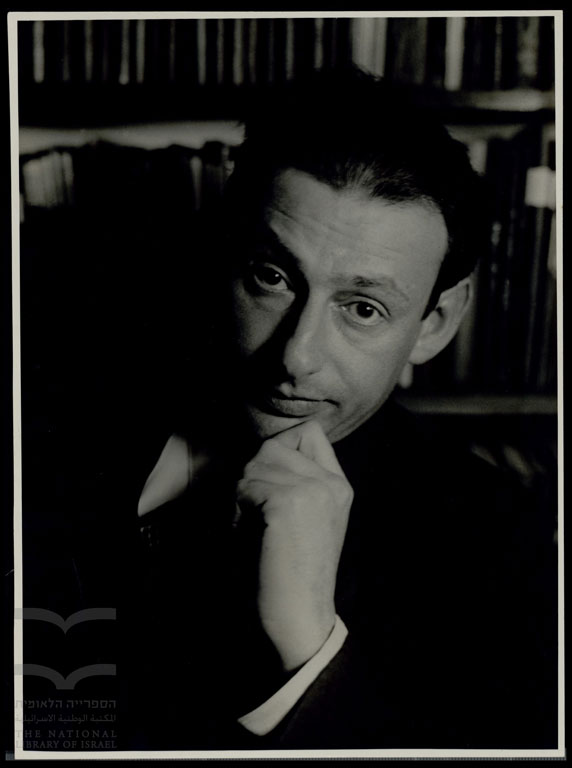 Gershom Scholem, NLI
Gershom Scholem, NLI -
A EUROPEAN INTELLECTUAL
Benjamin continued writing in German and gradually won himself recognition in the intellectual community. A study he wrote on a novel by Goethe, a book on the origin of German tragedy and his ongoing research activities were supposed to pave the way to tenure at a German university, but this was not to be. In the 1920s Benjamin translated part of Proust’s À la recherche du temps perdu, wrote for the newspapers and lived for a while in Paris. There in the bustling modern French capital, he began his great work on Parisian life in the 19th century.
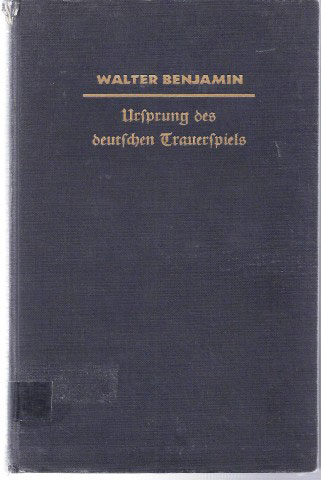 Walter Benjamin, The Origin of German Tragic Drama
Walter Benjamin, The Origin of German Tragic Drama -
1929 -1940: BERLIN- IBIZA –NICE- PARIS
Momentous political changes were occurring in Germany and all over Europe. With Hitler’s rise to power, Benjamin wandered to Ibiza in Spain and then Nice, France. After the burning of the Reichstag in 1933 he settled in Paris and mingled with a group of exiled German intellectuals: Hannah Arendt, Kurt Weill, Herman Hesse, and others. Benjamin, who struggled to earn a living as an exile in Paris, immersed himself in his work. He wrote about Baudelaire, spending long days in the libraries and wandering the streets of Paris by night. He continued working on his 19th century Paris piece and wrote “On the Concept of History”.
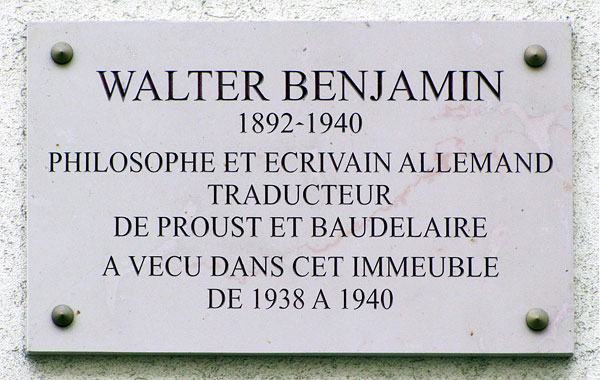 Walter Benjamin - Plaque commemorative 10 rue Dombasle, 75015 Paris
Walter Benjamin - Plaque commemorative 10 rue Dombasle, 75015 Paris -
FLEEING FROM THE NAZIS
In 1938, German Jews were stripped of their citizenship, and Benjamin became a stateless exile. He was arrested and incarcerated for three months. Leaving Paris on June 13th, just a day before the Wehrmacht entered Paris with an order to arrest him at his flat, Benjamin fled with his sister south, to Lourdes. His hope was to reach the USA, for which he had managed to secure a visa through his friend Max Horkheimer. Having reached the Pyrenees, he crossed the border into Spain with a group of refugees and the assistance of a guide.
-
DESPAIR AND SUICIDE
Having barely survived the arduous trail across the Pyrenees, he learnt, upon arriving at Portbou in Catalonia, that the Franco regime was not willing to accept any more refugees. Faced with the prospect of being deported to France and arrested by the Nazis, an ailing, exhausted, lost and desperate Benjamin took an overdose of morphine pills. He died on 25, September 1940, at the age of 48. Benjamin's brother Georg was killed at the Mathausen concentration camp in 1942. This tragedy was enhanced by the fact that the rest of Benjamin's group was later allowed to continue to Lisbon, and arrived there on September, 30th.
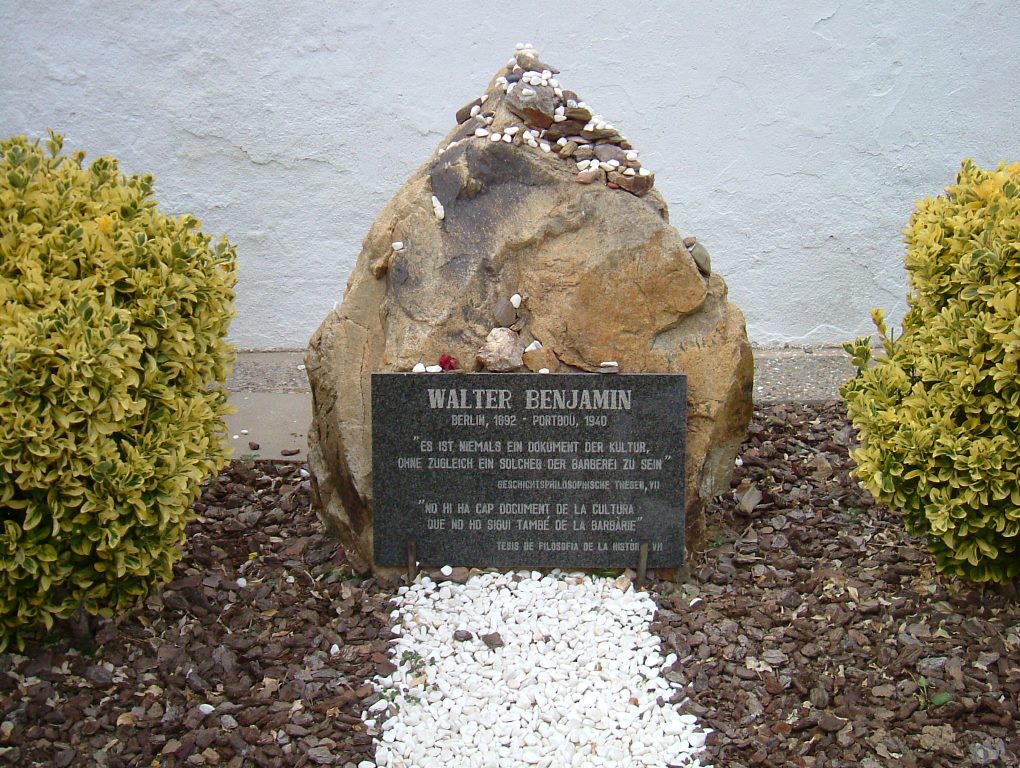 Walter Benjamin's grave in Portbou
Walter Benjamin's grave in Portbou